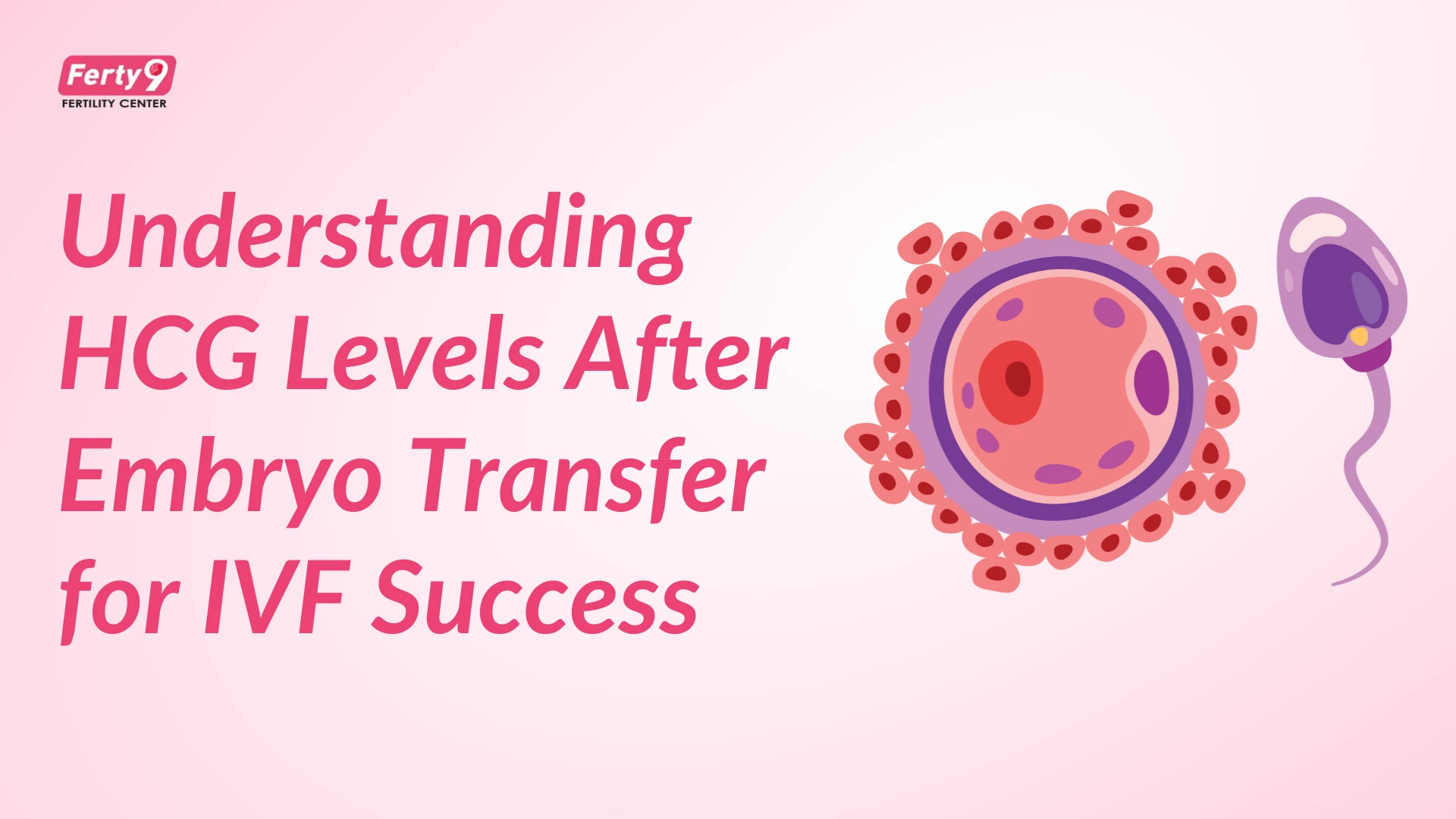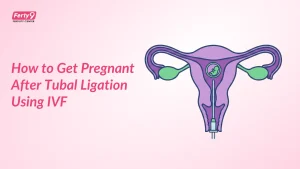The embryo transfer is the final, hopeful step in your IVF journey. What follows is the anxious “two-week wait,” a time filled with questions and anticipation. The key to knowing if the procedure was successful lies in a special hormone: HCG.
Tracking your HCG levels is the first and most reliable way to confirm a pregnancy. Understanding what these numbers mean can help you navigate this waiting period with more clarity and less anxiety. This blog will explain what HCG is, when to test for it, and how to interpret the results on your path to parenthood.
What Is HCG and Why It Matters in IVF
HCG (Human Chorionic Gonadotropin) is often called the “pregnancy hormone.” In simple terms, it is a special hormone that is produced by the cells of the developing embryo shortly after it implants into the uterine wall.
- Its Role: HCG’s primary job is to tell your body to keep producing other crucial hormones, like progesterone, which supports the uterine lining and sustains the early pregnancy.
- Why It Matters in IVF: The presence of HCG in your blood is the definitive sign that implantation has occurred and a pregnancy has begun. In an IVF cycle, since we know the exact day of the embryo transfer, we can track the rise of HCG with a predictable timeline.
When to Test HCG Levels After Embryo Transfer
As eager as you might be, timing is everything when it comes to testing for HCG.
- Typical Timeline: Your doctor at Ferty9 will schedule your first blood test, called a Beta HCG test, for about 10 to 14 days after your embryo transfer.
- Why Waiting is Important: Testing too early can lead to a false negative result because the HCG levels might still be too low to be detected. If you had an hCG “trigger shot” during your IVF cycle, testing too soon could also give a false positive, as the hormone from the injection can linger in your system.
Testing Methods
- Home Pregnancy Test (HPT): A urine test that can detect HCG, but it is less sensitive than a blood test.
- Blood Test (Beta HCG): This is the gold standard for confirming an IVF pregnancy. It is far more accurate and is the test we rely on at Ferty9.
Understanding Beta HCG Test Results
A urine test simply tells you “yes” or “no.” A Beta HCG blood test is much more informative because it is quantitative—it measures the exact amount of HCG in your blood.
Here is a general guide to expected HCG levels after an embryo transfer. Remember, these are just averages, and individual results can vary.
| Days Post-Transfer | Expected HCG (mIU/mL) | Remarks |
| 7–9 days | 5–50 | Very early stage; levels might still be low. |
| 10–12 days | 50–200 | A good indication of a positive result. |
| 13–15 days | 100–500+ | A strong sign of successful implantation. |
The Doubling Pattern: The Most Important Factor More important than the first number is the trend. In a healthy, viable pregnancy, HCG levels should double approximately every 48 to 72 hours during the early weeks.
What Are Normal and Abnormal HCG Patterns
- Normal HCG Rise: A steady increase, doubling every 2-3 days, is the best sign of a healthy developing pregnancy.
- Slow-Rising HCG: If the HCG levels are rising but not doubling as expected, it can be a cause for concern. However, it doesn’t always mean the pregnancy will fail. Your doctor will monitor you closely with repeated tests.
- Falling HCG: A decrease in HCG levels unfortunately suggests that the embryo has stopped developing, indicating a failed implantation or an early miscarriage.
Factors That Affect HCG Levels
It’s important not to compare your HCG numbers with others, as several factors can influence the levels:
- Embryo Quality and Implantation Timing: An embryo that implants a little later will start producing HCG later.
- Singleton vs. Twin Pregnancy: A pregnancy with twins or triplets will usually have much higher HCG levels.
- IVF Medications: The hormonal support you are on is designed to optimize your levels.
- Individual Body Differences: Every woman’s body metabolizes hormones differently.
How to Interpret Low or High HCG Levels
- Low HCG: A low initial HCG level could mean several things: late implantation, a non-viable “biochemical pregnancy,” or, in rare cases, an ectopic pregnancy. Serial testing is crucial.
- High HCG: Very high HCG levels might suggest a multiple pregnancy (twins or more). In very rare cases, it can indicate a molar pregnancy. An ultrasound will provide the final answer.
The key is to avoid making assumptions based on a single number. Your Ferty9 doctor will guide you through what the results mean for you.
The Emotional Side of HCG Testing
The two-week wait and the focus on HCG numbers can be incredibly stressful. It’s easy to get caught up in comparing your results with stories you find online.
- Manage Stress: Try to stay calm. Practice deep breathing, go for gentle walks, or engage in a relaxing hobby to keep your mind occupied.
- Trust Your Doctor: Focus on the facts provided by your medical team, not on internet forums. Your doctor knows your specific case and is the best source of information.
When to Contact Your Fertility Specialist
Please contact us at Ferty9 if:
- Your HCG levels are not doubling as expected in follow-up tests.
- You experience symptoms like severe cramping, heavy spotting or bleeding, or dizziness.
- After a positive HCG test, the next step is an ultrasound scan in a few weeks to confirm the location and heartbeat of the pregnancy.
Final Thoughts
HCG is a reliable and vital marker for confirming your pregnancy after an IVF cycle. Remember these key points:
- The trend is more important than the initial number. A steady, doubling rise is the goal.
- Regular monitoring with your doctor is the only way to truly understand your results.
Stay hopeful, trust the process, and lean on the support of your medical team. We are here to guide you with expert care every step of the way.



























